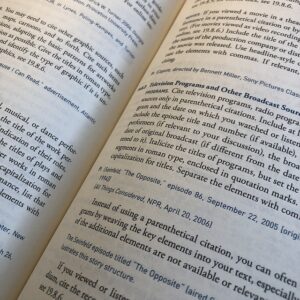Academic Reference Letters are critical for evaluating international students' applications, requiring accurate translations to avoid misinterpretations. Choosing experts in academia and target languages is essential for preserving reference integrity. Drafting these letters involves selecting close academic advisors who understand aspirations and strengths, while professional translators must master academic terminology and cultural nuances for effective communication. The meticulous process ensures letters highlight achievements, maintain original tone, and build trust between referees and institutions, enhancing credibility.
“Elevate your academic journey with expert guidance on high-quality translation of crucial documents—academic reference letters. This comprehensive guide delves into the significant impact of precise translations, highlighting how they unlock international opportunities. Learn why choosing seasoned professionals is essential for maintaining scholarly integrity and cultural nuance. From draft to final letter, discover a meticulous process that builds trust with institutions worldwide. Maximize your academic potential with expert-driven insights on these vital translations.”
- Understanding the Impact of Accurate Translation
- Choosing Experts for Your Academic References
- Ensuring Cultural Nuance and Precision
- The Process: From Draft to Final Letter
- Building Trust with Institutions Through Quality Translations
Understanding the Impact of Accurate Translation
In the academic realm, Academic Reference Letters hold immense weight in evaluating a candidate’s potential. These letters, often written by peers, mentors, or professors, are crucial references that can make or break a student’s application. Therefore, when considering international applicants or those requiring multi-lingual support, ensuring an accurate and high-quality translation of these reference letters is paramount.
An precise translation goes beyond mere word-for-word substitution; it involves understanding the nuances, academic jargon, and cultural references within the original text. Inaccurate translations could lead to misunderstandings, misinterpretations, or even loss of context—consequences that might negatively impact an applicant’s chances. Thus, choosing professional translators well-versed in academia and the target language is essential for maintaining the integrity and effectiveness of Academic Reference Letters.
Choosing Experts for Your Academic References
When crafting academic reference letters, selecting the right experts is paramount. These letters hold significant weight in admissions processes, so choosing individuals who can vouch for your capabilities and character wisely is crucial. Opt for professors or advisors who have closely worked with you, understanding your academic goals and strengths. Their insights should align with the institutions or programs you’re applying to, ensuring the references are both relevant and persuasive.
Look for experts who possess a deep understanding of your field of study and can articulate your unique skills and potential. Personal connections and familiarity with your work ethic make these individuals ideal choices. Additionally, consider those who have experience writing academic reference letters themselves, as they’ll be attuned to the nuances required to craft compelling support for your application.
Ensuring Cultural Nuance and Precision
When translating academic reference letters, precision and cultural nuance are paramount. A letter that sounds accurate in one language may lose its intended meaning or even convey a different sentiment in another. Professional translators must not only grasp the technical terminology specific to academia but also understand cultural references and idiomatic expressions. They should avoid literal translations that might result in awkward phrasing or miscommunication.
For instance, what constitutes a positive attribute in one culture may be perceived differently in another. Translators need to adapt their wording to reflect these nuances, ensuring that the letter effectively communicates the referent’s strengths and accomplishments while maintaining the original tone and intent. This meticulous approach is essential for creating authentic Academic Reference Letters that resonate with international audiences.
The Process: From Draft to Final Letter
The process of crafting high-quality academic reference letters involves several meticulous steps to ensure accuracy and impact. It begins with a thorough understanding of the individual’s academic achievements and character traits, requiring careful consideration of their unique strengths and contributions. Translators must then meticulously draft the letter, highlighting specific instances and accomplishments while adhering to the institution’s guidelines.
This initial draft undergoes a rigorous revision process, where every word is scrutinized for its ability to convey the subject’s capabilities effectively. The final letter is polished to perfection, ensuring it reflects the academic excellence and personal qualities of the individual it recommends. This meticulous approach to Academic Reference Letters guarantees that each word carries weight, leaving a lasting impression on admissions or scholarship committees.
Building Trust with Institutions Through Quality Translations
In the academic realm, where precision and clarity are paramount, academic reference letters play a pivotal role in shaping an individual’s reputation and opportunities. High-quality translations of these critical documents become indispensable when dealing with international institutions or candidates from diverse linguistic backgrounds. The process of translation is more than just word substitution; it’s about building trust. Accurate translations ensure that the essence, intent, and nuance of the original letter are preserved, fostering a reliable relationship between the referee and the institution.
By prioritizing excellence in translation, academic referees can confidently recommend their peers or mentees, knowing that their words will be received and understood as intended. This level of linguistic expertise demonstrates professionalism and respect for the academic community, ultimately enhancing the credibility of both the reference letter and the candidate it vouches for.
High-quality translation of academic reference letters is paramount to ensuring your credentials are accurately represented globally. By understanding the impact of accurate translation, choosing expert translators, and focusing on cultural nuance, you can build trust with educational institutions worldwide. The meticulous process from draft to final letter ensures that each word captures the essence and intent of the original, facilitating a seamless transition for international academic pursuits.
